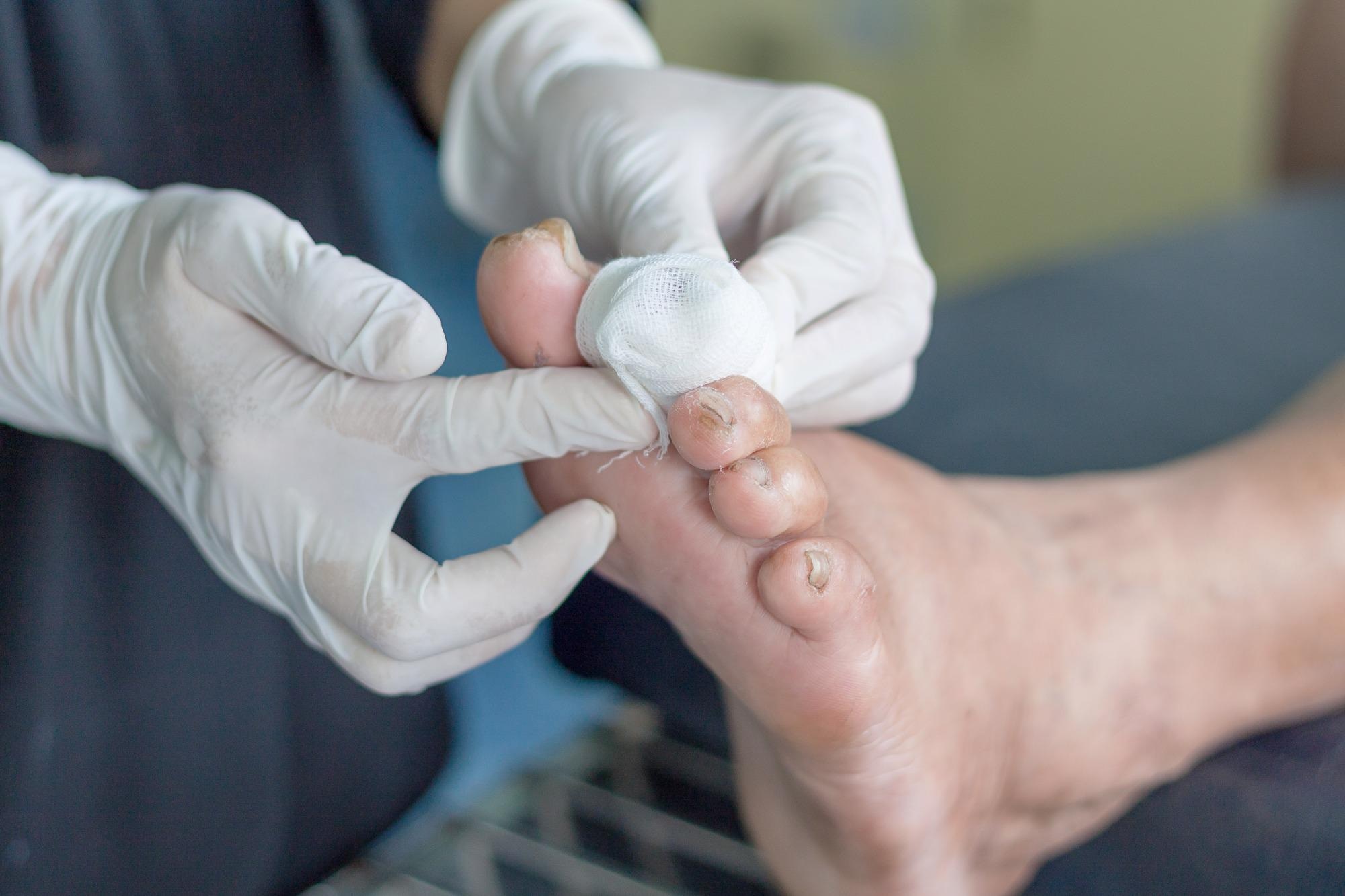Diabetes is a chronic disease that can lead to many complications. It is a problem that affects more than one quarter of American senior citizens. According to one alarming figure about 10 to 15 percent sufferers of diabetes are afflicted with foot and leg ulcers. These minor wounds in the absence of treatment, could become so severe that diabetic foot amputation becomes an unavoidable real-life event. In fact, nearly 80 percent of foot amputations are triggered from foot ulcers, underscoring the need for a rigorous care and preventive measures.

Managing diabetes is a multifaceted problem that requires a holistic strategy that goes beyond glucose control. To achieve this, regular foot hygiene is crucial to preventing diabetes-related amputations.
Understanding the Landscape
The world of diabetes and its complications is a complicated one. The high incidence of leg and foot ulcers among people with diabetes highlights the need for heightened awareness and proactive care. As the statistics paint an uncompromising picture and it becomes clear that cultivating a deeper comprehension of these complexities is essential in fighting against Amputations.
The Amputation Conundrum
Amputation is a real possibility for those with diabetes. This is a real-life experience that transcends the realm of statistics. It’s a long road from a minor ailment up to the possibility that you may need amputation due to diabetes.
Daily Footcare: A Protection from Amputation
The basis of diabetic prevention is in the daily foot treatment. This isn’t only about keeping your feet clean; it’s a meticulous practice aimed at finding and fixing potential problems before they escalate. Each step in this daily routine is strategic to combat diabetic-related amputations.
Vascular specialists: what is their role
Vascular specialists don’t manage diabetes directly, but their expertise is vital in helping to reduce the risks. Making sure that the blood flow is optimal to the lower extremities becomes an essential aspect of treatment, working towards alleviating discomfort in the legs and helping to heal wounds. Through this collaboration approach, the aim is clear for diabetes-related amputations to be prevented by reducing the effects of this condition.
Strategies to Avoid Amputation
To make it through the maze of risk for amputations due to diabetes requires a mixture of alertness, vigilance, and skilled intervention. It is important for people with diabetes to adopt a proactive attitude. Regular checks with healthcare professionals including vascular specialists aid in early detection and treatment.
Leg Ulcers Learning about the Triggers
Leg ulcers can be a precursor to other, more severe issues. So, they demand our attention. Understanding the triggers that cause leg ulcers can be crucial. If the reason is due to an insufficient circulation or neuropathy or even a combination of these causes, identifying their primary causes will allow the targeted treatment. For more information, click Diabetes Leg Ulcer
Education as empowerment
Giving people with diabetes understanding of the dangers and prevention measures is crucial. The educational initiatives, in both health care settings as well as in the wider community, can create a bridge between awareness and action. Knowing the consequences of seemingly minor injuries could lead to timely responses and may even avoid the necessity for diabetic feet Amputation.
Private Battles or Collective Triumphs
Amputations caused by diabetes isn’t just an individual struggle; it’s a collective victory. Support networks can provide a place to share experiences, gain knowledge from each other and build coping skills. The emotional toll of facing the risk of amputation is enormous, and a sense in which you’re part of a larger community can provide solace and strength.
Conclusion: The journey through ulcers, diabetes, and risk of amputation are many-faceted. Foot care on a regular basis is the primary line of defense. Vascular experts’ expertise can be an advantage to avoid complications. Diabetes sufferers can lessen the likelihood of amputations by increasing awareness, taking preventive measures and cultivating the support system.
